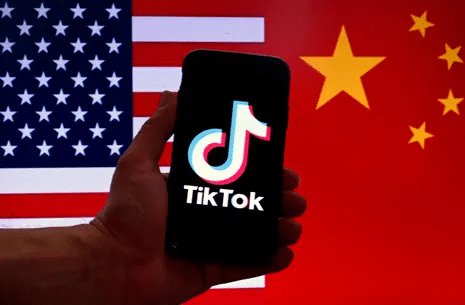
TikTok caught in legal tug-of-war over future in US
TikTok faces an uncertain future in the U.S. due to ongoing legal challenges and national security concerns.
Potential implications of a nationwide TikTok ban have been discussed globally due to the app’s widespread popularity, especially with younger users. However, the controversy surrounding TikTok centers on concerns that the Chinese government could access user data through its parent company, ByteDance, is still being compared to its impact on small business creators and businesses that rely on the platform for engagement and marketing.
On his first day in office, President Donald Trump signed an executive order granting TikTok a 75-day reprieve from the ban that had left the app dark on Jan.19.
In a recent interview, Rep. Ro Khanna, D-Calif., said he feels that since the platform had such a variety of views from people, young people in particular, who were critical of the war in Gaza and views on reproductive rights and referring to those on the right against vaccines, Khanna said, “I think it made people uncomfortable.”
“This was a platform that had a tremendous amount of free speech,” Khanna said.
Khanna voted against the federal law demanding a sale of the app or a ban and is now partnering with Sens. Ed Markey, D-Mass., and Rand Paul, R-Ky., to repeal the Protecting Americans from Former Adversaries Controlled Application Act.
“They tell you this is about China. About security. About safety. That’s a lie. This is about control. About fear. About silencing you. A government that can ban an app, can ban a book. A government that can silence a platform, can silence a person. Today, it’s TikTok. Tomorrow, it’s your news. Next week, it’s your voice. Some politicians think the First Amendment has fine print. It doesn’t. The right to free speech doesn’t come with exceptions. Not for apps. Not for ideas. Not for politicians who think they know better than you. They don’t ban speech to protect you. They ban speech to control you,” Paul said in a statement.
He continued, “If we don’t stop this now, where does it end? To every American who believes in liberty – stand up. Speak out. Fight back. Because freedom isn’t given. It’s taken.”
The Repeal the TikTok ban Act was introduced to Congress on Jan. 20. Repealing the law would essentially avoid the sale or ban of the platform.
Temu, Shein, and RedNote are just a few Chinese-owned companies consistently referenced that potentially gather data directly from U.S. users but are considered “more obscure,” Khanna said.
Sen. Tom Cotton, R-Ark., has continually blocked anything preserving the ban, noting that there will be no support, no extensions and no compromises regarding the ban.
“The government does not get to control how Americans express themselves – on or offline – based on vague and hypothetical harms. We hope the Senate will defend the freedoms at the heart of our democracy by voting yes on this important bill,” said Jenna Leventoff, senior policy counsel at the American Civil Liberties Union.
David Inserra, a policy expert on free expression and technology, said, “President Trump’s new EO on government censorship recognizes the power the government can wield to pressure or coerce private companies to censor Americans’ speech,” stating that over the years, government agencies engaged with various social media platforms over COVID-19 and elections saying that while not directly “coercive,” the interactions effectively forced companies to censor speech or else “face the wrath of a hostile administration.”
He continued that “Americans of all viewpoints should have confidence that their government is not working to suppress their First Amendment protected speech and so it is entirely appropriate for the Trump administration to reaffirm the importance of expression and investigate potential abuses.”



